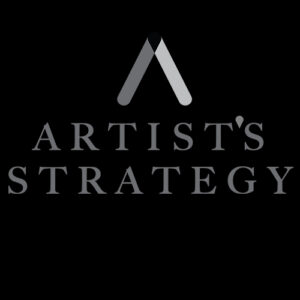
Invariably when most actors begin to talk about business, all roads lead to this idea of “type”. It forces its way to the front of their minds when they get their headshots, when they talk to agents, when they write their website bios, or whenever marketing comes to play.
Most actors hate it and rightfully so, even those who engage shamelessly with the idea. They hate how they feel put in a box, that their humanity has been diminished down to a trope, that their uniqueness as an artist is completely disregarded for simple labels.
We’re with them, but for different reasons.
We’re all for specifying your product identity as an artist, and for, frankly objectifying yourself. Why? Cause if you don’t, the industry will do it for you! Remember, it is not you personally that we are selling, we are selling YOU, INC. And whatever makes that “sell” more enticing we believe must be considered.
But the idea of type is a totally ineffective piece of your marketing strategy.
Type is a way for industry folks to categorize you…they’re actually doing you a favor, they’re trying to figure out clearly who you are as an actor and what problem you solve.
When you go to the store and buy coconut water or a pair of sneakers, imagine if the companies who made them expected you to be the one to see and understand what makes their product better than others without explicitly telling you? That sounds kinda ridiculous right?
But many artists and especially actors do not want to consider the two points above; they do not want to put in the work to construct a strong and specific brand identity, figure out what makes them unique and market it effectively. That’s fine! But now we are putting all of that power into the hands of others to do it for us and why do we expect them to really see those things? Casting directors, agents, producers all have other stuff to do, so they will lean on simple associations like “girl next door” or “funny best friend”.
That’s not them being dismissive or mean; if you don’t like how people see you as an actor that is your responsibility.
So, in order to be free of “type” we must be able to specify and market effectively who we are as actors and what unique problems we solve without using type.
This is called a brand identity.
This is very different from “type,” as it has almost nothing to do with what types of parts you can play. Types are pre-determined labels created by others that actors are then put into, but in order for any business to stand out in such a competitive marketplace they cannot be like everything else…rather they must innovate and provide something new.
Effective and thorough branding means considering all the elements of who you are as an artist from a variety of different perspectives. Then, with that raw material, you construct a clear, powerful and complex story about what your product is.
If you have an incredibly clear and unique story around yourself, type becomes unnecessary. Implied in such a story are the kinds of problems you solve and therefore how you can serve any project and process. They won’t see “jock with a heart of gold” or “manic pixie dream girl,” they will see you, or the version of you you are selling (see above, we are not our business.)
You’re a storyteller after all, so tell a better story!
How Do Actors Survive Financially?
Understanding the Acting Industry


Artist's Strategy offers artists the opportunity to strategize and create tactical next steps towards a successful, fulfilling career. Based on tested business principles, Artist's Strategy helps you design a tangible path towards a sustainable future. Incorporating and using the basic tenets of a healthy business, we will help you set a one, three or five-year-plan that will work for you and keep you on track to seeing real results. With Artist's Strategy, you will work alongside founder Joshua Morgan to identify the strengths and opportunities of your business and learn more about how to stabilize and grow. How long and how frequently you work with Artist's Strategy depends on your individual needs and resources. Contact us to discuss a plan that could work for you.
Read Full Profile© 2021 TheatreArtLife. All rights reserved.

Thank you so much for reading, but you have now reached your free article limit for this month.
Our contributors are currently writing more articles for you to enjoy.
To keep reading, all you have to do is become a subscriber and then you can read unlimited articles anytime.
Your investment will help us continue to ignite connections across the globe in live entertainment and build this community for industry professionals.